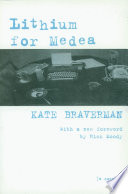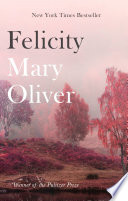Check out the best Mary Oliver poems in our guide; from early works to late prose, Oliver’s poetic style is captivating and inspiring to readers.
Self-expression is often underrated, and many poets find peace through emotive writing that allows them to delve into the meaning of life. Reading and writing poetry that questions life, our purpose, and the world around us can greatly improve our quality of life. The best Mary Oliver poems are an excellent place to start if you want inspiring and reflective poetry.
Table of Contents
Open Table of Contents
- Who Is Mary Oliver?
- What is Mary Oliver’s Most Famous Poem?
- What Are the Best Lines from Mary Oliver’s Poems?
- What Should I Read if I Like Mary Oliver?
- Key Themes From Mary Oliver’s Poems
- 1. “The Summer Day” by Mary Oliver
- 2. “Wild Geese” by Mary Oliver
- 3. “The Swan”
- 4. “Starlings in Winter”
- 5. “Invitation”
- 6. “Dogfish”
- 7. “Don’t Hesitate”
- 8. “When Death Comes”
- 9. “The Uses of Sorrow”
- 10. “The Journey”
- 11. “Praying”
- 12. “The Chance To Love Everything”
- 13. “Sleeping In The Forest”
Who Is Mary Oliver?
 Mary Oliver via Wikimedia
Mary Oliver via Wikimedia
Mary Jane Oliver was an American National Book Award and Pulitzer Prize-winning poet. She was born in Ohio 1933 and died in 2019. who won the. Oliver drew inspiration from nature and often drew on long solitary walks in the wild. She wrote twenty books of poetry and six books of prose during her prolific career.
What is Mary Oliver’s Most Famous Poem?
“The Summer Day” by Mary Oliver is one of her most famous poems. “The Summer Day” is a popular poem that discusses the beauty of nature and the purpose of life.
Oliver’s speaker admires the beauty of the world around us, noting the many wonderful animals and creatures that can be found there. The poem also has a spiritual element to it, admiring the creator who made the world and all of its beauty.
What Are the Best Lines from Mary Oliver’s Poems?
Following on from Oliver’s most famous poem, we can take the final line from “The Summer Day” as one of the best lines from Oliver’s collection. This beautiful line invites the reader to ponder life’s meaning and gain perspective from admiring the world around them. The final line acts as a call to action, asking the reader what they will achieve or aspire to be in their lifetime.
“Tell me, what is it you plan to do with your one wild and precious life?”
What Should I Read if I Like Mary Oliver?
Fans of Mary Oliver should read poetry by other emotive authors like Maya Angelou or Billy Collins. Although no poet can quite capture the same essence of Oliver’s work, these two poets have made a mark on the poetic world. For example, Maya Aneglou’s “Still I Rise” is world-famous due to its inspiring narrative and social commentary.
Key Themes From Mary Oliver’s Poems
Mary Oliver’s poems typically addressed several themes including nature and wilderness self-discovery and inner life, death and mortality. She also wrote regularly about spirituality and mindfulness, joy, wonder, gratitude, animals, love, and loss.
1. “The Summer Day” by Mary Oliver
Sometimes, all we need to do is appreciate life again by gazing at the beauty of our world. Reflect on the birds, the bees, the trees, and the land that stands before us and ponder how it was created. By appreciating the wonder of existence, we can gain deep and emotional gratitude for being alive and living in harmony with nature. “The Summer Day” perfectly captures this feeling through thought-provoking verse.
“Who made the world? Who made the swan, and the black bear? Who made the grasshopper? this grasshopper, I mean— the one who has flung herself out of the grass the one who is eating sugar out of my hand who is moving her jaws back and forth instead of up and down— who is gazing around with her enormous and complicated eyes.”
“The Summer Day” by Mary Oliver
2. “Wild Geese” by Mary Oliver
“Wild Geese” is one of Mary Oliver’s best-known poems.
“Wild Geese” is a famous poem that speaks directly to the reader, offering advice on how to live a good and fulfilling life. Oliver encourages the reader not to worry about being good but rather to be true to nature and appreciate the beauty of the world around them. Comparing the call of nature to being as loud as the call of wild geese, Oliver seamlessly blends imagery and emotive language to create an inspiring poem about living life to the fullest. Read it on Amazon; click here.
“Whoever you are, no matter how lonely, the world offers itself to your imagination, calls to you like the wild geese, harsh and exciting — over and over announcing your place in the family of things.”
“Wild Geese” by Mary Oliver
3. “The Swan”
“The Swan” a captivating poem that explores the themes of nature, transformation, and the quest for personal understanding. In the poem, Oliver vividly describes the grace and mystery of a swan’s movement through water, using this as a metaphor for the journey of the self. She delves into the notions of beauty, freedom, and the swan’s effortless embrace of its own identity, prompting reflection on human struggles with self-acceptance and finding one’s place in the world. The language is lyrical and thought-provoking, painting a scene that stays with the reader long after finishing the poem.
“Across the wide waters something comes floating–a slim and delicate ship, filled with white flowers– and it moves on its miraculous muscles”
“The Swan” by Mary Oliver
4. “Starlings in Winter”
“Starlings in Winter” captures the essence of resilience and hope amidst the bleakness of winter. Oliver’s vivid imagery brings to life a flock of starlings, their energetic and synchronized movements symbolizing endurance and adaptability in harsh conditions. The poem reflects on the awe-inspiring aspect of nature’s persistence and the small, yet significant, moments of joy and wonder it provides. Oliver’s use of language and metaphor subtly encourages us to find strength and inspiration in nature’s tenacity, particularly during life’s colder, more challenging periods.
“Chunky and noisy but with stars in their black feathers they spring from the telephone wire and instantly they are acrobats in the freezing wind. And now, in the theater of air they swing over buildings,”
“Starlings in Winter” by Mary Oliver
5. “Invitation”
“Invitation” is a lyrical and inspiring poem that extends an open, gentle call to the reader to engage with the natural world. Through simple yet evocative language, Oliver urges embracing the joys and mysteries of nature, symbolized by the singing of a goldfinch. The poem, with its easy, flowing rhythm, captures the essence of mindfulness and the importance of connecting with the natural world around us. Oliver’s words serve as a reminder to find beauty and meaning in the everyday, encouraging a deeper appreciation of life’s simple pleasures.
“Oh do you have time to linger for just a little while out of your busy and very important day for the goldfinches that have gathered in a field of thistles”
“Invitation” by Mary Oliver
6. “Dogfish”
“Dogfish” is a thought-provoking and deeply reflective poem delving into the themes of survival, loneliness, and the stark realities of life. Through the metaphor of a dogfish, a creature often considered plain and unremarkable, Oliver explores the resilience required in the face of life’s adversities and the often solitary nature of existence. The poem’s raw and honest language conveys a sense of grit and endurance, challenging the reader to reconsider the value and strength in what is commonly overlooked or undervalued. Oliver’s skilled use of imagery and metaphor in “Dogfish” offers a poignant meditation on the complexities of life and the inner strength inherent in all beings.
“Some kind of relaxed and beautiful thing kept flickering in with the tide and looking around. Black as a fisherman’s boot with a white belly.”
“Dogfish” by Mary Oliver
7. “Don’t Hesitate”
“Don’t Hesitate” is an uplifting and inspiring poem that encourages embracing life’s joys and opportunities with immediacy and enthusiasm. Through her characteristic use of simple, resonant language, Oliver conveys the importance of relishing moments of happiness, wonder, and the beauty found in everyday experiences. The poem is a heartwarming reminder to us not to delay or overlook the potential for joy, even in small things, as these are the essences that make life fulfilling and meaningful. Oliver’s message is clear and empowering: life is fleeting, and one should seize happiness wherever and whenever it can be found.
“If you suddenly and unexpectedly feel joy don’t hesitate. Give in to it. There are plenty of lives and whole towns destroyed or about to be. We are not wise, and not very often kind. And much can never be redeemed.”
“Don’t Hesitate” by Mary Oliver
8. “When Death Comes”
“When Death Comes” is a profound and introspective work by Oliver. She contemplates the inevitability of death and the desire to live a meaningful life. Oliver confronts the concept of mortality with curiosity and a fearless embrace, viewing it as a natural part of the life cycle. The poem is rich with imagery that captures Oliver’s intention to live fully and observe life intensely, rather than merely existing as a visitor. Her reflective and honest tone encourages poetry fans to consider their own life and the legacy they wish to leave, highlighting the importance of experiencing life deeply and leaving an impactful mark on the world.
When death comes Like the hungry bear in autumn; When death comes and takes all the bright coins from his purse To buy me, and snaps the purse shut; When death comes Like the measle-pox
“When Death Comes” by Mary Oliver
9. “The Uses of Sorrow”
“The Uses of Sorrow” is a brief yet profound poem that offers a contemplative perspective on experiencing sorrow. In this poem, Oliver suggests that sorrow, encapsulated in the image of a box full of darkness, can be a gift, albeit one that might not be immediately recognized as such. This metaphor implies that through enduring and understanding sorrow, one can gain insight and personal growth. The poem’s succinctness and depth convey a powerful message about the transformative and instructive nature of our darker experiences in life.
“Someone I loved once gave me a box full of darkness. It took me years to understand that this, too, was a gift.”
“The Uses of Sorrow” by Mary Oliver
10. “The Journey”
“The Journey” is an inspiring and empowering poem about the courage it takes to follow one’s path amidst the demands and voices of others. Oliver writes about the difficult and solitary journey of self-discovery and the struggle to break free from the expectations and norms imposed by society. She uses the metaphor of a journey to illustrate the internal struggle and the eventual triumph of asserting one’s individuality and true self. The poem resonates with poetry lovers who have faced the challenge of finding and trusting their direction in life, emphasizing the importance of listening to one’s inner voice and stepping forward into the unknown.
“One day you finally knew What you had to do, and began Though the voices around you Kept shouting Their bad advice”
“The Journey” by Mary Oliver
11. “Praying”
“Praying” is a thoughtful and accessible meditation on the act of prayer, presented in a way that transcends traditional religious boundaries. Oliver portrays prayer not as a formal or dogmatic ritual, but as a simple, intuitive act of paying attention, of entering a state of deep contemplation and openness to the wonders of the natural world. She emphasizes the idea of prayer being more about listening and being present in the moment than reciting words or engaging in specific religious practices. You can read this poem to find spirituality in everyday experiences and the beauty of the natural world. Oliver suggests prayer can be a personal and informal experience, connecting the individual to a deeper sense of existence and awareness.
“It doesn’t have to be the blue iris it could be weeds in a vacant lot or a few small stones; just pay attention then patch a few words together and don’t try to make them elaborate this isn’t a contest but the doorway into thanks and a silence in which another voice may speak.”
“Praying” by Mary Oliver
12. “The Chance To Love Everything”
“The Chance to Love Everything” is a moving and reflective poem that speaks to the capacity and desire to embrace and love all aspects of life. Oliver’s profound appreciation for the world around her is evident as she explores the theme of unconditional acceptance and love, extending it to every facet of existence, both joyous and challenging. The poem conveys a sense of wonder and gratitude for the opportunity to experience and cherish life in its entirety. Through her poignant and sincere words, Oliver invites readers to open their hearts to the world, embracing the beauty and complexity of everything life offers.
“All summer I made friends with the creatures nearby — they flowed through the fields and under the tent walls or padded through the door grinning through their many teeth looking for seeds suet, sugar; muttering and humming opening the breadbox, happiest when there was milk and music.”
“The Chance To Love Everything” by Mary Oliver
13. “Sleeping In The Forest”
“Sleeping in the Forest” is a serene and contemplative poem where Oliver captures the experience and emotions of spending a night immersed in the natural world. Through vivid imagery and sensory detail, Oliver conveys a deep sense of peace and a profound connection with nature, finding comfort and solace in the forest’s embrace. The poem reflects on the beauty and simplicity of the natural world, contrasting it with the complexities of human life. Oliver’s experience of sleeping in the forest allows her to feel a part of the natural world, suggesting a sense of unity and belonging that transcends everyday existence.
“I thought the earth remembered me, she took me back so tenderly, arranging her dark skirts, her pockets full of lichens and seeds.”
“Sleeping In The Forest” by Mary Oliver




